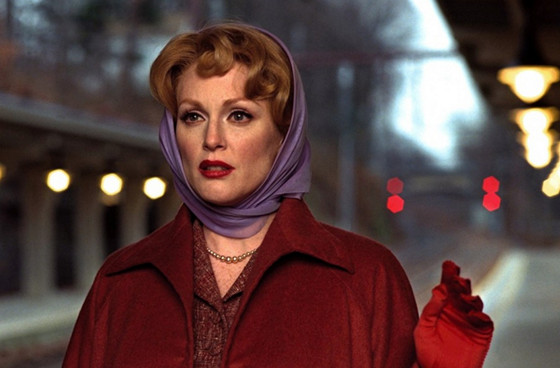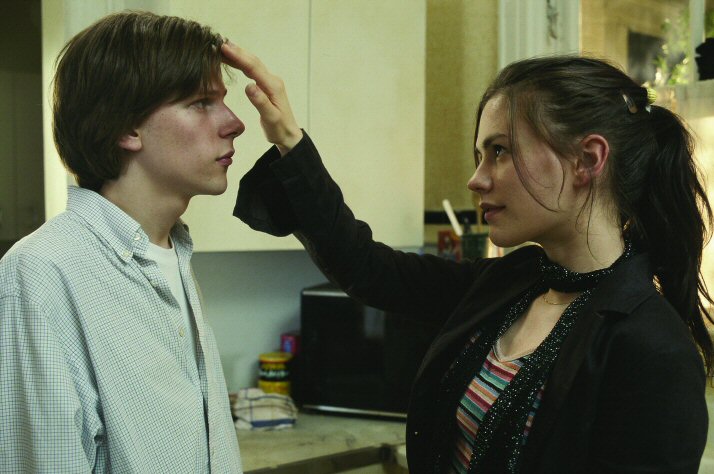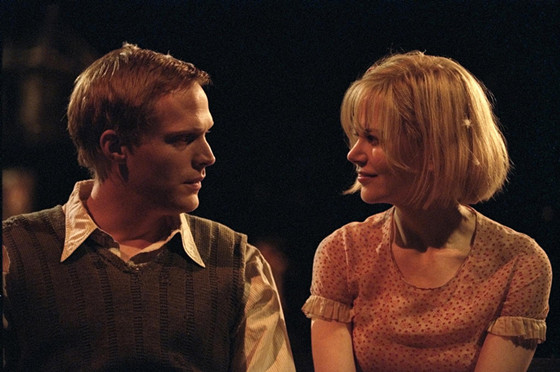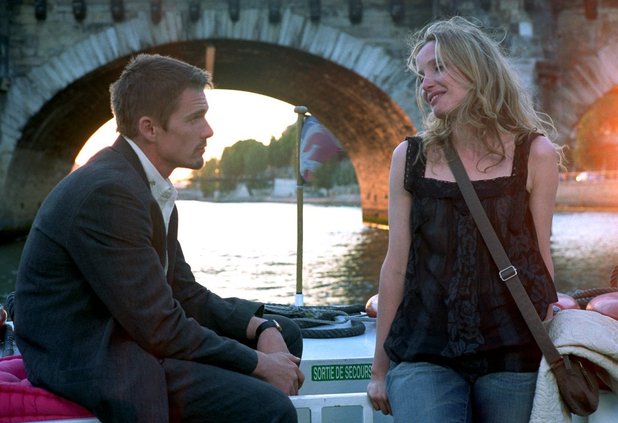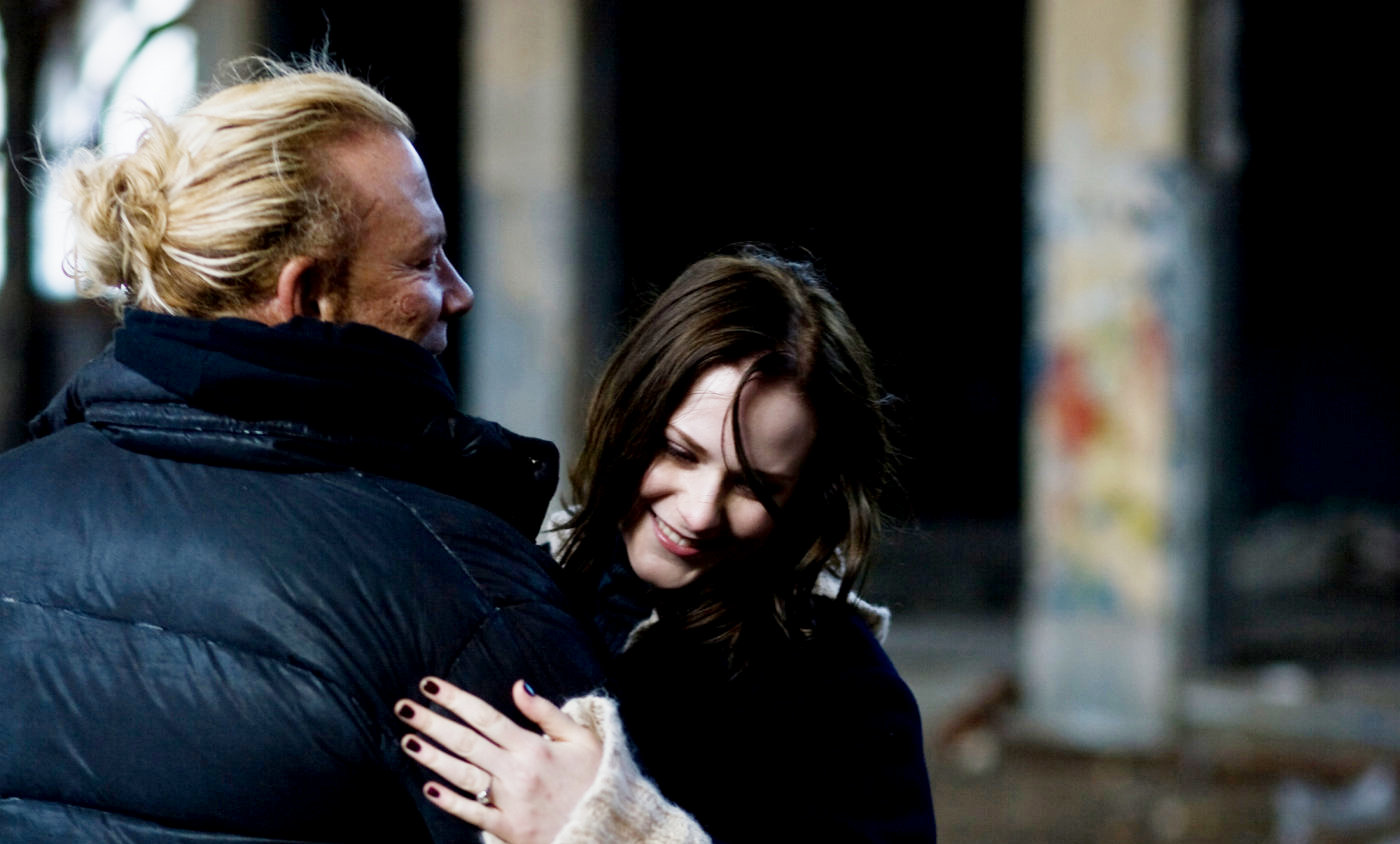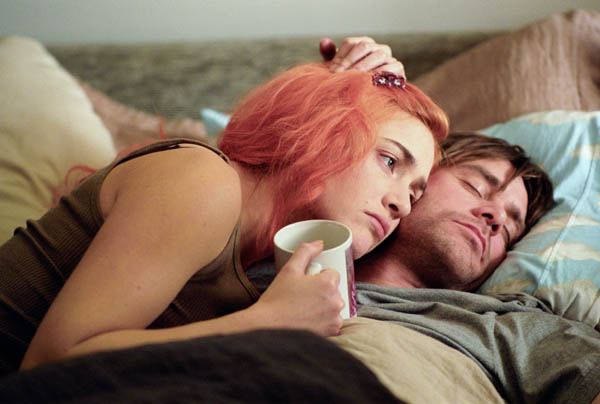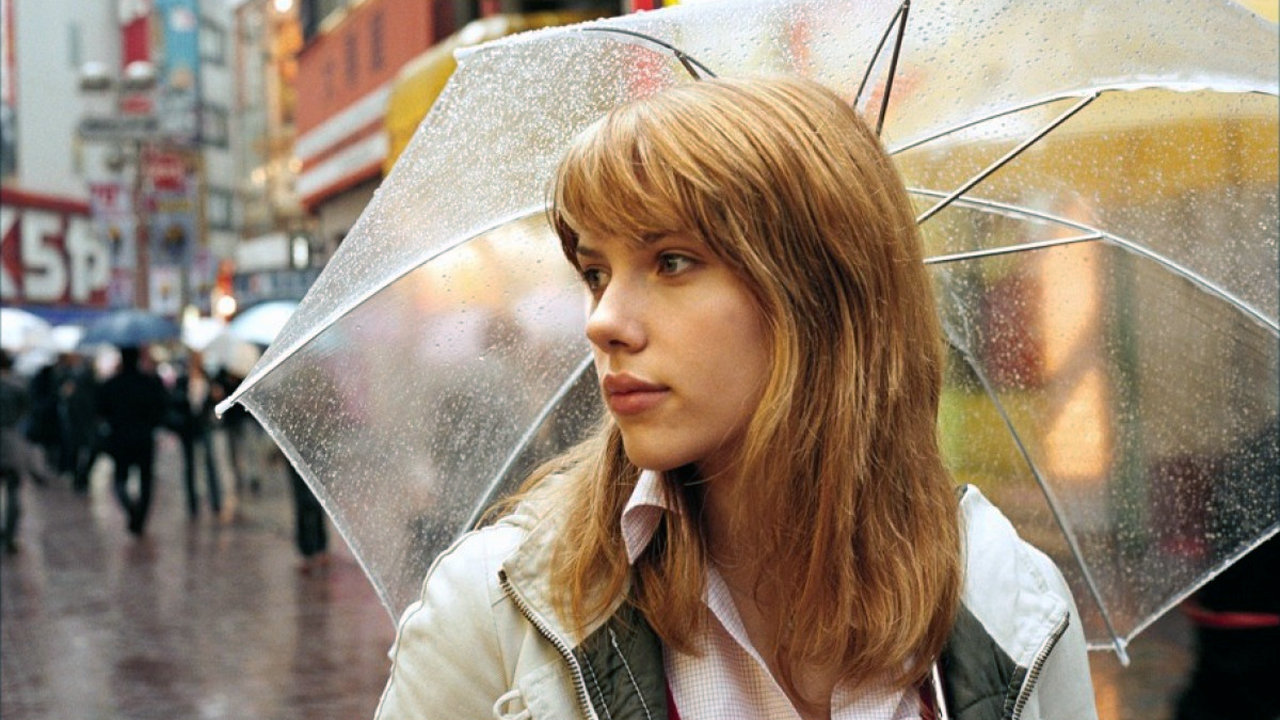7. Far From Heaven (2002)
A spiritual remake or, if you will, extended homage to Douglas Sirk’s “All That Heaven Allows”, Far From Heaven nonetheless more than earns its own identity. Like Sirk’s film, the stark color palate and opulent setting is simply a veneer that hides a society of judgement and prejudice.
There is something deeply sinister about this seemingly hospitable upper-class community of Hartford, Connecticut. Julianne Moore’s Cathy, once quite capable of keeping up with the Joneses, discovers her husband’s sexual yearnings are not what she imagined.
As her world falls apart, her only real support comes in the form of her African American gardener Raymond (Dennis Haysbert). But, in 1957, their budding love affair is far from socially acceptable, neither to Cathy’s cocktail party contingent nor Raymond’s working class black community.
The premise may seem like schmaltz, but the execution is exquisite. The performances are first rate, in particular Patricia Clarkson as the small-minded local gossip Eleanor, who single-handedly encapsulates the film’s themes.
Dennis Quaid, too, cannot be forgotten for his compelling subplot as a supposed man’s man unable to be frank about his sexuality. The scenes, such as a sequence in which Raymond’s daughter becomes the subject of violent prejudice, are well-picked. In the end, the film’s conclusion will leave you believing in the film’s appropriate title.
6. The Squid and the Whale (2005)
One of the frankest, and most comprehensively characterized films ever made about the disintegration of a family, The Squid and the Whale may still be Noah Baumbach’s masterpiece. Loosely centering on Jesse Eisenberg’s Walt Berkman, this tale of a marital breakup in 1980’s New York is both cinematic and frighteningly real.
The tale touches on subjects as diverse as tennis, erotic prose, Lou Reed, Kafka, and juvenile alcoholism, all with a sense of human understanding that gives the viewer a genuine feel of realism. We see through the facade of some characters, we identify with others, but either way we leave having been gifted a true slice of life.
The film is semi-autobiographical for Noah Baumbach, and as a writer he draws his characters with surgical precision. Jeff Daniels’ Bernard is a frightfully pompous patriarchal figure, Laura Linney’s Joan is a likeable but subdued matriarch with hidden abilities, Owen Kline is magnificent as the juvenile Frank up acting out tragically in the wake of family dysfunction.
We also meet the provocative writing student, the tennis coach lover, the earnest girlfriend, and a host of other characters on our journey. It is difficult to avoid seeing your own life reflected painfully in this film.
5. Dogville (2003)
As audacious a film as has emerged from any decade, Dogville is quickly earning acclaim as one of the bravest indie films of the 2000s. Furthermore, it is truly fascinating. Over the film’s near three hour running time, we are presented with a litany of moral conundrums, “what would you do?” questions that resonate on most human levels.
The protagonist, Grace, arrives in the sleepy town of Dogville whilst on the run from dangerous criminals. She brings out the best in her love interest Tom, but slowly brings out more and more of the worst in the villagers who begin to take advantage of, then persecute her in increasingly disturbing fashion. Sound interesting? How about if I tell you there are no sets, just a sound stage with chalk outlines?
Spending three hours in the hand-drawn imaginary town of Dogville is more cinematic than you might think. The ensemble cast is hugely impressive, boasting the likes of Stellan Skarsgard, Lauren Bacall, James Caan, John Hurt, and Philip Baker Hall. The hand held camera makes terrific use of the Altman-esque zoom and pan approach to capture the action in immediate fashion.
Then, there is the ending, which will give any vintage James Cagney caper a true run for its money. It is a brutal, stylish, and oddly hysterical finale that finds an unexpected musical contribution. Indeed, Dogville is entirely too fascinating to miss.
4. Before Sunset (2004)
Simply to attempt a sequel to one of the most structurally courageous romantic films of all time (1995’s Before Sunrise) was a courageous task. To have it be even more structurally stubborn as its predecessor magnified the risk even more so.
However, for director Richard Linklater and actors Julie Delpy and Ethan Hawke, to revisit the characters of Jesse and Celine was fate and, as such, essential. Nine years on, we find Jesse and Celine in Paris, reunited after their first and only meeting at Jesse’s book signing. The book is based on his one night only romantic encounter- so their second meeting is as such somewhat of an unusual one.
Yes, this film is 85 minutes of two people talking, with little to no narrative intervention. However, for fans of this franchise, this installment could not be more urgent. Now in their thirties, Celine is alone and Jesse is caught in a loveless marriage. With Jesse due to fly out of Paris in the evening, Jesse and Celine have one afternoon in which to decide whether or not to spend the rest of their lives together, or part once more and forever hold their peace.
This urgency adds a depth and power to the wandering premise, and the characters’ slightly melancholy air makes the film more powerful than the first. The end will have you virtually reeling, the idea and meaning of love ruminating in your head long after.
3. The Wrestler (2008)
Raw, natural, and unassuming. This is a film where the little moments are truly allowed to gradually gain weight. Unfairly marketed as a macho professional wrestling movie, the reality is something quite removed from that.
Certainly, the story of the downfall of washed up professional wrestler Randy “The Ram” Robinson (real name Robin) showcases the athleticism, passion, and respect inherent to the performers of the business, but the savagery and loneliness of the lifestyle is more so the center of this unflinchingly realist film. It is also about age, as Randy is an old man in a young man’s game, success and glamour long since gone by, left with only the wreckage of his life of excess to haunt him.
Yet, there is humour and many moments to relish in, it is to the film’s credit that it never feels overly depressing. Instead, it is a film about people. Central to Randy’s life is his friend Cassidy (Marisa Tomei). An ageing stripper, she too is a performer lost in her persona and running out of time. She is his glimmer of hope.
Randy’s daughter Stephanie (Evan Rachel Wood) is the most egregious evidence of the damage caused by Randy’s former life, but also his greatest opportunity to reconcile his past and redeem himself. Beyond wrestling, there is life, and this absorbing drama is most concerned with our ability to alienate those we love; to self-destruct. As such, it conveys this message disturbingly well.
2. Eternal Sunshine of the Spotless Mind (2004)
Eternal Sunshine of the Spotless Mind is many things. A love story, a break-up movie, a dreamy avant garde film, a visual experiment, an odyssey, a character piece. That a film can conform to so many archetypes and still be so original is very much to its credit.
The film’s playful visual experimentation plays with the idea of fractured memory, of two lovers who try to erase each other from their pasts from their brains only to have it come screaming back to them in a bizarre dream narratives. We see Joel (Jim Carrey) and Clementine (Kate Winslet) lying in a bed on snow-capped beach, bathing in Joel’s mother’s sink, and caught in the rain indoors. The practical effects team seem to have truly extolled the best of their abilities here.
There are great supporting performances from Tom Wilkinson, Mark Ruffalo, Kirsten Dunst, and a truly creepy Elijah Wood. All of these performance make one’s trip to Lacuna Inc more than memorable. However, amidst all of the mad cap antics and characterisations, the film truly belongs to Jim Carrey and Kate Winslet.
Screenwriting wizard Charlie Kaufman is to be credited for the fact that such a wildly structured movie can, nonetheless, hold such a compelling romance as its central conceit. Furthermore, to have Kate Winslet play the wacky one and Jim Carrey play it straight is quite a bizarre thing to witness. But, the romance succeeds on the chemistry of its leads. For all of the visual mayhem, it is the character’s first encounter on a train that resonates most, and for all the right reasons.
1. Lost in Translation (2003)
Lost in Translation is not a 2000s indie film, it is the 2000s indie film. It goes nowhere but where the characters dictate that it goes. It say nothing but what the sprawling Tokyo landscape wants it to say. It has a pulsating score, two infectious leads, and instantly unforgettable scenes. Most importantly of all, in a genre of hipsters and auteurs, Lost in Translation is very, very cool.
Its cult following was almost instantaneous. The Tokyo landscape is breathtakingly set to the droll melodies of the synth pop group Air. The beauty and soul of Scarlett Johansson echoes through every scene. Her backside is impressive enough to warrant an extended close-up in the film’s opening shot. Her underwear-clad looks of longing as she sits against her hotel-room window, overlooking Tokyo, her teary cries for help to an unsympathetic friend, these are now the stuff of cinematic lore.
Of course, as any devotee of the film will tell you, Johansson does especially well when one considers the tour de force that she plays opposite. You see, this is the moment at which the world fell once again in love with Bill Murray. Murray is a revelation in this film. He plays Bob Harris, a washed up actor in Tokyo to shoot a nonsensical whiskey advert, with the kind of hilarious sarcasm that appeals to the world weary side of us all.
His ennui as a the instructions furiously enthusiastic advertisement director are poorly translated by an interpreter, his incredulousness on a ludicrously camp Japanese talk show, his attempts in vain to converse with an old woman in a hospital waiting room, are beyond priceless. But, in the end, the film is best summarised in a sequence in which Bob and Charlotte, now firm friends, lie in a bed together discussing the possible meanings of their existence. Bob’s grasp of Charlotte’s foot, along with his line “you’re not hopeless”, is as passionate as any sex scene.
The muted last line from Bob to Charlotte is apt. Were they lovers? Were they friends? In the end, it doesn’t seem to matter. They found each other for the briefest of times, and we the viewer felt every moment. Lost in Translation is a shameless, essential slice of indie cinema.
Author Bio: Ross Carey is a Film Studies graduate from County Cork In Ireland. He is an award winning short filmmaker and is in the midst of writing his debut feature film. Before joining Taste if Cinema he was ran a popular blog entitled “Kino Shout! Films”. He will discuss the subject of film at any opportunity.
